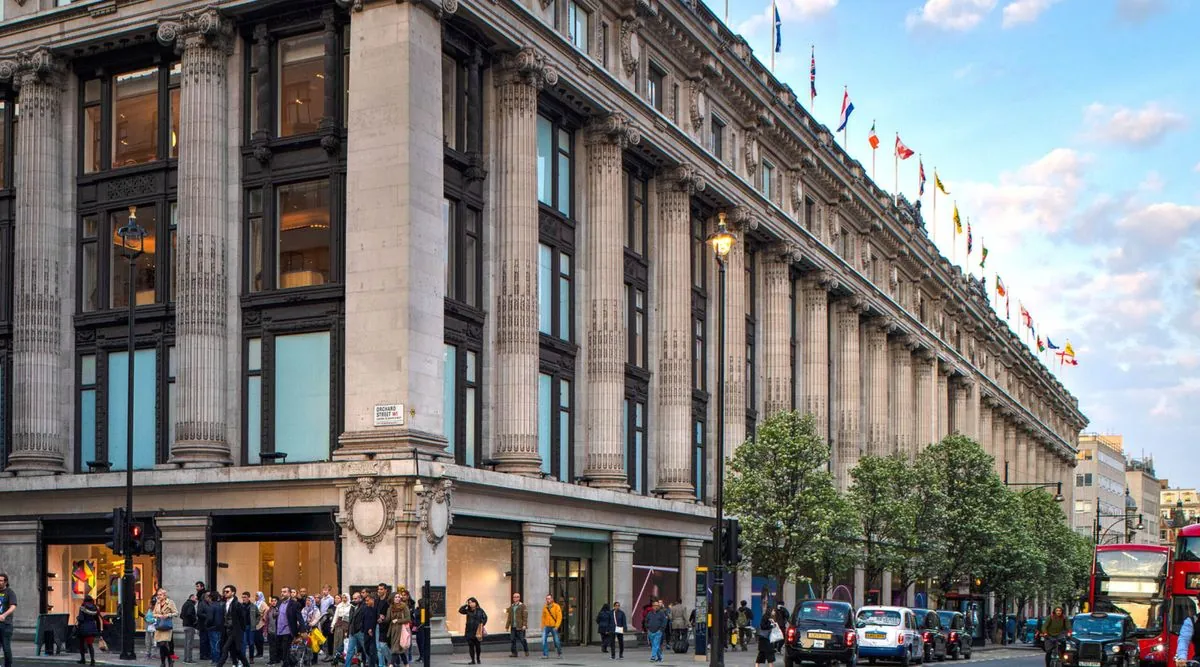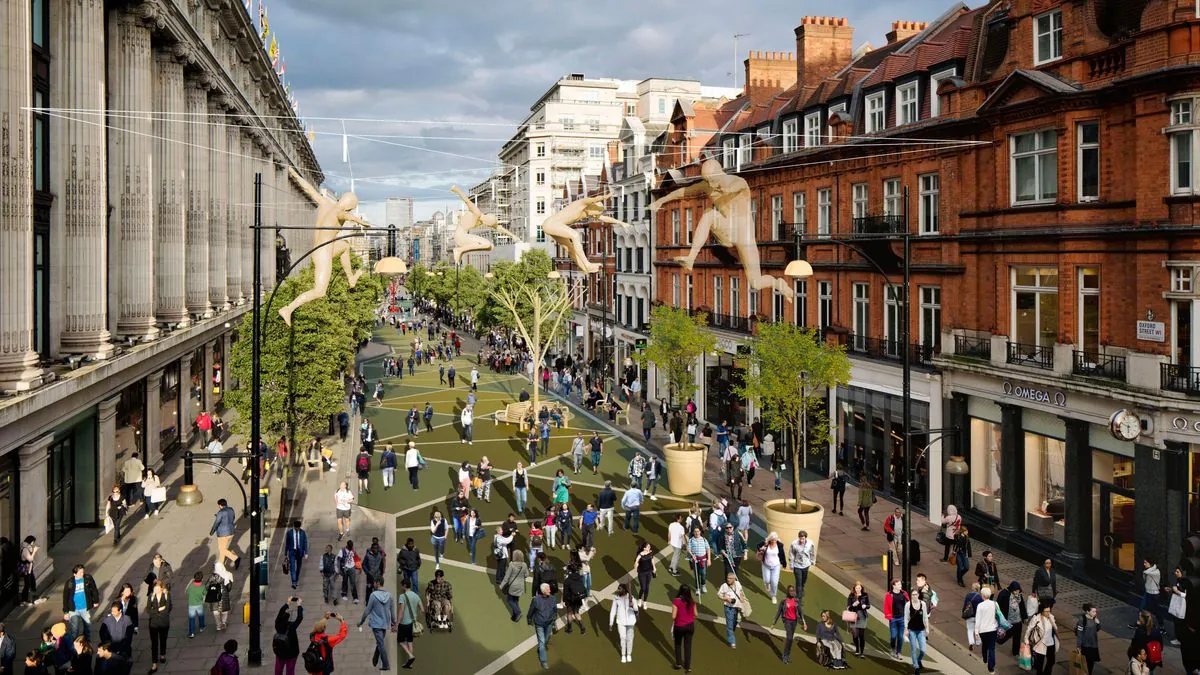London's Oxford Street Pedestrianization Plan Gains Government Support
London Mayor Sadiq Khan proposes pedestrianizing Oxford Street to boost shopping. The plan, backed by the Deputy Prime Minister, aims to revitalize the area post-pandemic and create economic growth.

London's iconic Oxford Street may undergo a significant transformation as part of a new initiative proposed by Mayor Sadiq Khan. The plan, announced on September 17, 2024, aims to pedestrianize the famous shopping thoroughfare to attract more visitors and stimulate economic growth.
The proposal covers a one-mile stretch from Oxford Circus to Marble Arch, encompassing some of the British capital's most renowned retail establishments. This 1.9-kilometer section of Oxford Street, which has been a major shopping destination for nearly three centuries, currently welcomes approximately 500,000 visitors daily.
Angela Rayner, Britain's Deputy Prime Minister, has expressed support for the initiative, stating that it would drive growth, create jobs, and generate economic activity. This backing from the central government marks a significant difference from a previous version of the plan, which was blocked by the local Westminster City Council.
Khan emphasized the importance of this support, noting:
"The difference this time is, I've got the support of central government, and that means if ... there was opposition from the council, we'd have the powers to proceed with good plans."
The pedestrianization plan comes as Oxford Street and many brick-and-mortar shops struggle to recover from the impacts of the COVID-19 pandemic, which saw a shift towards online shopping and reduced office attendance. Several flagship stores, including House of Fraser and Topshop, have closed in recent years, highlighting the need for revitalization.
Some retailers have welcomed the proposal. John Lewis, whose flagship store has been a fixture on Oxford Street since 1864, referred to the thoroughfare as the "nation's high street." The New West End company, representing local retailers, affirmed the area's continued importance for London's retail and hospitality sectors.

However, the plan has raised concerns among some local residents and shoppers regarding transport rerouting and access. Stuart Love, chief executive of Westminster City Council, has requested more details on how these issues will be addressed, particularly regarding bus routes that currently use the east-west road.
If approved, Oxford Street would join other major global shopping destinations that have gone traffic-free, such as Times Square in New York and La Rambla in Barcelona. The initiative aligns with the broader goals of the Labour Party to accelerate project approvals and stimulate Britain's economic growth.
As the plan awaits final approval from Angela Rayner, who also serves as the housing and communities minister, the future of Oxford Street hangs in the balance. The proposed pedestrianization represents a bold step towards reimagining one of London's most famous streets, with potential far-reaching implications for the city's retail landscape and urban planning strategies.


































